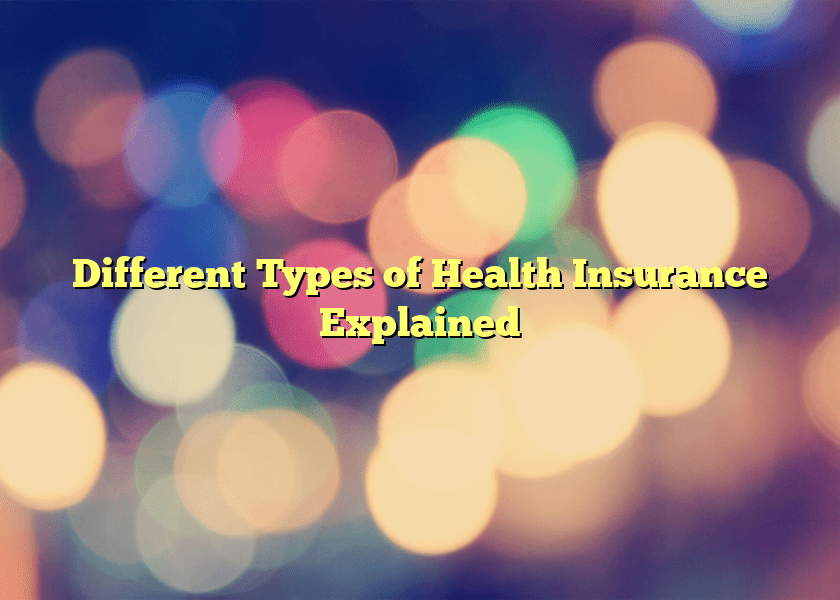Different Types of Health Insurance Explained
Health is the biggest and most crucial asset of every living being. An unhealthy animal and individual can never truly experience any joy. It is the wealth of health that provides the requisite potential to topple over all odds and to move ahead with life. So such an essential part of a person’s life demands extra care and concern. An ideal way to secure an individual’s prized possession for him and for those who love him is a health insurance policy.
A health insurance policy is meant to financially assist a person in case there occurs a setback to his health. For instance he is afflicted by some grave disease, meets an accident, becomes handicapped etc. In order to provide complete service and for the all round development of the individual the health care system of America offers ample of options or different types of health insurance for its citizens. Some of these are explained below:
• Preferred Provider Organization or PPO is a discount form of health insurance policy. PPO has a complete network of health care providers from hospitals to doctors. If an individual has taken PPO policy and takes treatment from any of these assigned providers, the PPO covers his complete medical treatment. While if the person takes recourse to some other doctor or institution, he gets served at a reduced rate. PPO’s thus facilitate medical services at abridged rates.
• One immensely cheap form of health insurance is the catastrophic health insurance. This sort of policy is basically meant for the people who have the financial means to manage regular illnesses and hospitalizations. The deductibles i.e. the sum of money an individual for these policies are quite large for this policy. At times there are caps on the amount the policy will pay in case of illness.
• A Short term health insurance policy is akin to a life insurance policy in the sense that both can be adopted for a specific tenure. This policy covers catastrophic to comprehensive cases and excludes the situation of pregnancy and childbirth. Quite often it is hard to qualify for these policies as there are strict conditions or qualifying procedures. Moreover these policies may not cover any pre-existing medical conditions.
• HMOs or the Health Maintenance Organizations also offer health insurane t significantly lower premiums. But the disadvantage is that they confine the sources a person may seek in non-exigency situations. HMOs do not cover the precautionary measures such as immunization, mammograms and physicals. There are quite a few issues associated with the HMOs. For instance it is believed that doctors receive financial perks for deducting the cost of medical services to patients. One way to do this is to pay monthly fee to the doctor for each patient despite of delving in to the issues of what treatment the latter one needs.
• There are also full-service health insurances. The lucrative feature of these policies is that they cover all sort of illnesses, cover any medical treatment the patient takes regardless of the institution or doctor and the deductibles are at the discretion of the policyholder. He may pay a high or a low one.
• Medicare or Medicaid insurances are meant for the retired or the low-income individuals.
